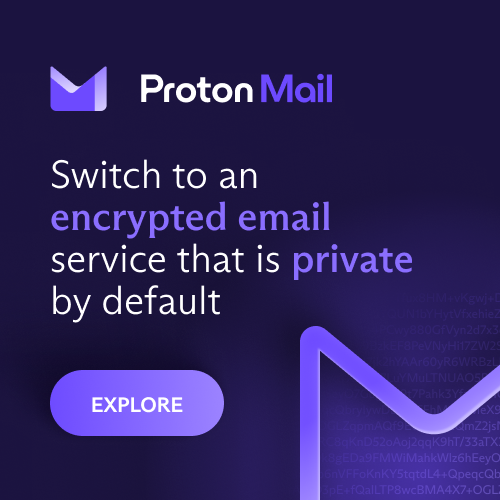Local SEO is the secret ingredient that can transform your business visibility.
Imagine potential customers searching for services right in your neighborhood, and guess who pops up first? That’s right—your business!
Understanding what local SEO is can set you apart from competitors and drive foot traffic to your physical location.
As more people rely on their smartphones to find nearby solutions, mastering local search optimization has never been more critical.
Whether you’re a small café or a bustling retail store, optimizing local SEO could be the game-changer you've been looking for.
Let’s dive in.
What is Local SEO?
Local SEO (Local Search Engine Optimization) refers to the practice of optimizing your online presence to attract more business from relevant local searches. It’s all about connecting with potential customers in your geographical area.
When users search for services or products nearby, local SEO ensures that businesses like yours appear prominently in those results. This process involves various techniques aimed specifically at enhancing visibility within a community.
Key elements include optimizing your Google My Business listing, ensuring accurate NAP (Name, Address, Phone number) information across directories, and gathering positive customer reviews.
Additionally, localized content on your website can significantly enhance relevance for specific locations. This means addressing community interests or events directly tied to where you operate.
In essence, local SEO is the bridge between businesses and consumers seeking immediate solutions right around the corner.
Local SEO vs Traditional SEO
Local SEO focuses on optimizing a business's online presence for location-based searches. It's about connecting with customers in your area who are actively seeking services or products you offer.
Traditional SEO, on the other hand, targets broader audiences. It aims to improve visibility across search engines without specific geographic intent. This strategy is crucial for businesses looking to attract customers from larger regions or globally.
The main difference lies in the audience’s intent. Local SEO taps into immediate needs—think "near me" searches—while traditional efforts cast a wider net.
Another distinction is how each approach utilizes platforms and strategies. Local SEO emphasizes Google My Business listings, local citations, and reviews, while traditional methods focus more on backlinks and general keyword optimization.
Understanding these differences allows businesses to tailor their strategies effectively, maximizing reach based on specific goals and customer behaviors.
Why Local SEO is important?
Local SEO is crucial for businesses that want to attract customers in their immediate vicinity. With the rise of mobile searches, people often look for services or products nearby. If you're not optimized for local search, you risk losing potential customers right at your doorstep.
This type of SEO targets specific geographic areas, allowing businesses to connect with their audience more effectively. When users search online and find your business listed on Google Maps, it builds trust and credibility.
Moreover, most consumers read reviews before making a decision. Local SEO helps showcase these reviews prominently. Positive feedback can significantly influence purchasing choices and enhance your reputation within the community.
Optimizing local SEO leads to better visibility in search engines. This means appearing higher on results pages when locals seek what you offer—leading directly to increased foot traffic and sales opportunities.
Local SEO strategies
Local SEO strategies focus on enhancing your online presence in a specific geographical area. This means tailoring your efforts to attract nearby customers.
Start with Google My Business. Claiming and optimizing your listing is vital. Include accurate information like hours, address, and contact details.
Next, leverage local keywords throughout your content. Research what potential customers are searching for in your area and integrate those terms organically into website copy.
Encourage customer reviews on platforms such as Yelp or Facebook. Positive feedback boosts credibility while helping you rank better locally.
Building citations from reputable directories can also enhance visibility. Ensure that all business listings provide consistent information across various platforms.
Engaging with the local community via social media fosters relationships and encourages shares. It’s an effective way to increase brand awareness within your target region without heavy investment in advertising campaigns.
On-page local SEO
On-page local SEO focuses on optimizing individual web pages to rank better in local search results. This involves using specific keywords that reflect your business’s location and services.
Start with title tags and meta descriptions. Include your city or region along with primary keywords. This helps search engines understand what you offer and where you’re located.
Next, optimize content by incorporating local terms naturally throughout the text. Mention landmarks, neighborhoods, or regional phrases to connect more deeply with your audience.
Don’t forget about images. Use alt tags that describe not only the image but also include relevant keywords related to your locality.
Ensure your NAP (Name, Address, Phone Number) is consistent across all pages of your site. This consistency reinforces credibility with both users and search engines alike.
Off-page local SEO
Off-page local SEO focuses on enhancing your online presence beyond your website. It’s all about building authority and trust in the community.
One effective strategy is managing local citations. These references to your business name, address, and phone number across various platforms help search engines verify your legitimacy.
Name, Address & Phone are commonly known as NAP especially in SEO community.
Another key element is acquiring backlinks from reputable local sites. Partner with community organizations or get featured in local blogs to enhance credibility.
Social media also plays a pivotal role. Engaging with customers through platforms like Facebook or Instagram can drive traffic back to your site while creating a loyal customer base.
Customer reviews are essential too. Encourage satisfied clients to leave positive feedback on Google My Business and Yelp. This not only boosts visibility but also enhances reputation within the locality.
Networking within your industry can create opportunities for collaborations that further improve off-page SEO efforts as well.
Mobile SEO for local
Mobile SEO is crucial for local businesses. With the rise of smartphones, more users are searching for products and services while on the go. If your site isn't mobile-friendly, you're likely losing potential customers.
Responsive design should be a priority. Ensure that your website adapts seamlessly to different screen sizes. A smooth user experience can encourage visitors to stay longer and explore more.
Speed matters too. Optimize images and streamline code to reduce loading times on mobile devices. Fast-loading pages keep users engaged.
Local keywords play a significant role in mobile searches as well. Incorporate phrases that reflect local intent into your content, titles, and meta descriptions.
Don’t forget about Google My Business listings either. Make sure they are fully optimized for mobile viewing so potential customers can easily find you when they're nearby or searching from their phones.
Local SEO audit and monitoring
A local SEO audit serves as a crucial checkpoint for businesses aiming to boost their visibility. It involves analyzing various aspects of your online presence, from Google My Business listings to local citations.
Start by reviewing your NAP consistency—Name, Address, Phone Number—across all platforms. Discrepancies can harm search rankings and confuse potential customers.
Next, evaluate your website's performance in local searches. Utilize tools like Google Analytics to assess traffic sources and user behavior specific to local queries.
Monitoring is equally important. Regularly check reviews on platforms like Yelp or TripAdvisor; they impact both reputation and ranking. Engaging with customer feedback fosters trust and encourages more positive interactions.
Leverage tools that track keyword rankings related to "What is local SEO" or "How to rank in Google Map." Keeping an eye on these metrics ensures you stay ahead of competitors while optimizing your strategy effectively over time.
Local SEO tools
Choosing the right tools can streamline your local SEO efforts. Various options cater to different needs, whether you’re tracking rankings or analyzing competition.
Google My Business is essential for managing your business presence on Google Maps and Search. It’s where potential customers find crucial information like location, hours, and reviews.
For keyword research, tools like Ahrefs and SEMrush shine. They help uncover local keywords that drive traffic specific to your area.
Monitoring citations is vital too. Tools such as Moz Local can ensure your business information stays consistent across directories.
Consider using analytics platforms like Google Analytics or BrightLocal to track performance metrics effectively. These insights guide adjustments in strategy as needed.
With the right arsenal of tools at hand, optimizing local SEO becomes a more efficient process tailored just for you.
How to start local SEO?
Starting local SEO begins with optimizing your Google My Business (GMB) listing. Make sure you claim and verify your business. Fill in every detail—address, phone number, website, and operating hours.
Next, focus on keyword research. Identify terms that locals use when searching for services you offer. Incorporate these keywords naturally into your content.
On your website, create location-specific pages if applicable. Use local landmarks or neighborhoods to help search engines understand where you operate.
Encouraging customer reviews can significantly enhance visibility as well. Responding to reviews shows engagement and builds trust with potential clients.
Don’t forget about citations; ensure consistent information across all online directories. This helps boost credibility in the eyes of search engines.
Consider utilizing social media platforms tailored for local engagement to connect more deeply with your community.
Wrap
The world of local SEO is multifaceted, and understanding its nuances can significantly impact your online presence. By harnessing the power of local search strategies, businesses can enhance their visibility in targeted geographic areas. Focusing on both on-page and off-page tactics allows you to build a robust foundation for your local SEO efforts.
Optimizing for mobile users is essential, especially as more consumers rely on their smartphones to find local services. Conducting regular audits ensures that your strategy remains effective and adapts to changing algorithms or market dynamics.
With a plethora of tools available at your fingertips, getting started with optimizing local SEO has never been easier. Whether you're aiming to rank higher in Google Maps or drive foot traffic to your store, every step counts toward achieving those goals. Embracing these strategies will not only help you stand out from competitors but also create stronger connections with potential customers in your community.
As the digital landscape continues evolving, so too should your approach towards local SEO; staying informed and proactive will lead you down the path of success.



